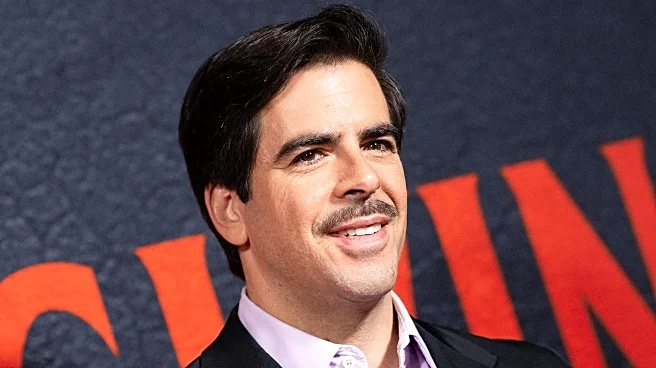What's Happening?
IndustryWeek's podcast 'Behind the Curtain: Adventures in Continuous Improvement' recently featured an episode focusing on empathy as a critical leadership characteristic. Hosted by Dr. Mohamed Saleh and
John Dyer, the discussion highlighted the importance of empathy in team-based improvement. The hosts differentiated empathy from sympathy, emphasizing active listening and the need for leaders to act on the information they receive. They argued that empathy involves more than just being a sounding board; it requires showing genuine concern and vulnerability. The episode also touched on mindfulness and emotional intelligence as integral components of empathy, challenging the notion that empathy is a weakness in organizational settings.
Why It's Important?
Empathy in leadership is increasingly recognized as vital for fostering a supportive and productive work environment. By prioritizing empathy, leaders can enhance communication, build trust, and improve team dynamics. This approach can lead to better decision-making and increased employee satisfaction, ultimately benefiting organizational performance. The podcast's emphasis on empathy challenges traditional views that may undervalue emotional intelligence in leadership roles. As organizations strive for continuous improvement, incorporating empathy into leadership practices can drive positive change and innovation.
What's Next?
The discussion on empathy as a leadership trait may influence organizations to reevaluate their promotion criteria and leadership development programs. As empathy gains recognition as a valuable skill, companies might invest in training programs to cultivate this trait among their leaders. This shift could lead to a more inclusive and supportive workplace culture, encouraging leaders to prioritize the well-being of their teams. Additionally, the conversation may spark further research and dialogue on the role of empathy in leadership, potentially influencing industry standards and practices.
Beyond the Headlines
The exploration of empathy in leadership raises ethical considerations about the balance between emotional intelligence and traditional leadership qualities. As organizations increasingly value empathy, they may face challenges in integrating this trait into existing leadership models. The conversation also highlights cultural shifts in workplace dynamics, where emotional intelligence is becoming a key factor in leadership success. This trend could lead to long-term changes in how leadership is perceived and practiced across various industries.










